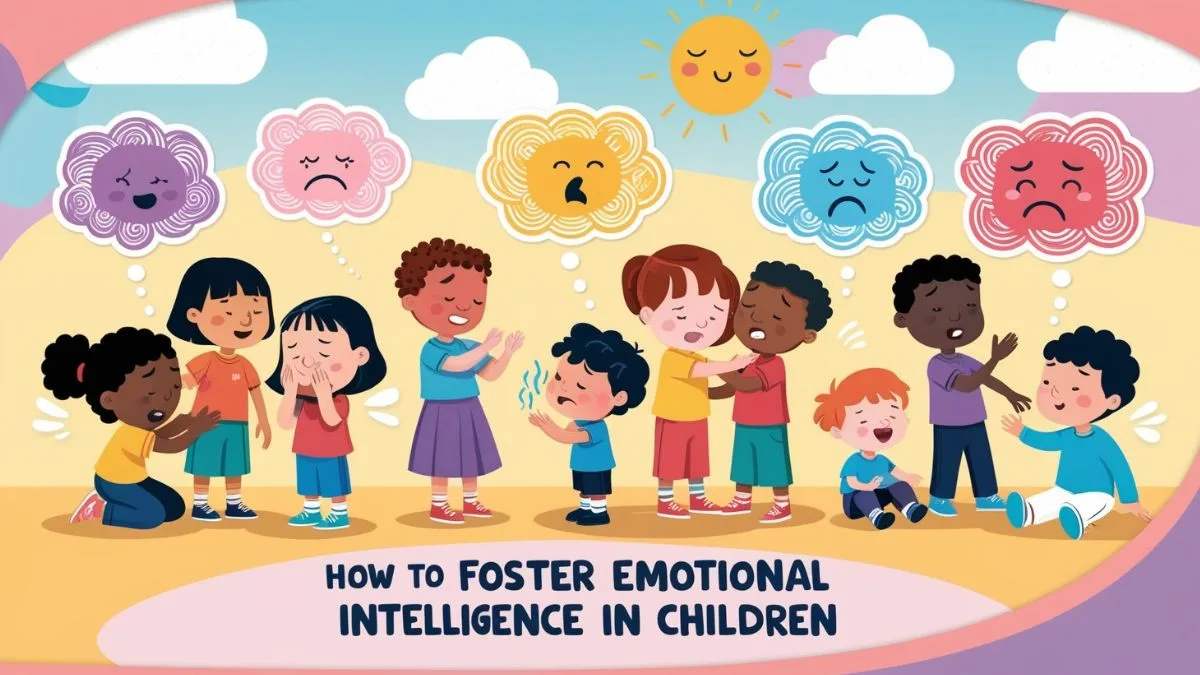
Emotional intelligence (EI) is a critical life skill that helps children understand and manage their emotions, empathize with others, and build healthy relationships. By fostering emotional intelligence in children, parents and educators can equip them with the tools they need to navigate life’s challenges effectively. This article explores practical ways to nurture EI in children.
What is Emotional Intelligence?
Emotional intelligence refers to the ability to recognize, understand, and regulate emotions in oneself and others. It encompasses five key components:
Self-awareness: Recognizing one’s emotions and their impact.
Self-regulation: Managing emotions and impulses effectively.
Motivation: Harnessing emotions to achieve goals.
Empathy: Understanding and sharing the feelings of others.
Social skills: Building and maintaining positive relationships.
Why is Emotional Intelligence Important for Children?
Children with high emotional intelligence tend to:
Exhibit better academic performance.
Form stronger friendships.
Handle stress and adversity effectively.
Show greater empathy and kindness toward others.
By fostering EI, parents and educators can help children grow into emotionally resilient and socially adept individuals.
Practical Ways to Foster Emotional Intelligence in Children
1. Encourage Open Communication
Build a supportive environment where children can openly share their emotions without fear of judgment.
Use open-ended questions to encourage deeper conversations.
Teach children to label their emotions (e.g., “I’m feeling frustrated”).
2. Model Emotional Intelligence
Demonstrate healthy emotional expression and regulation in your own behavior.
Show empathy in your interactions, helping children learn by example.
Acknowledge your emotions and explain how you manage them.
3. Teach Problem-Solving Skills
Help children identify challenges and brainstorm solutions.
Please encourage them to consider how their actions affect others.
Please support them in developing strategies to resolve conflicts peacefully.
4. Promote Empathy
Read books or watch movies that explore different perspectives and emotions.
Discuss how characters in stories might feel and why.
Encourage acts of kindness and volunteering to help children understand others’ experiences.
5. Practice Mindfulness
Incorporate mindfulness activities, including deep breathing, meditation, and yoga.
Help children recognize and manage stress triggers.
Please encourage them to focus on the present moment and self-reflection.
6. Offer Positive Reinforcement
Praise children for showing emotional intelligence, such as sharing, listening, or being considerate.
Provide constructive feedback when needed, focusing on growth and learning.
Celebrate small successes to build their confidence.
7. Set Age-Appropriate Expectations
Tailor your approach to your child’s developmental stage.
Be patient and allow them time to practice and improve their emotional skills.
Use everyday experiences as teaching moments.
The Role of Schools in Fostering Emotional Intelligence
Schools play a significant role in nurturing EI by:
Incorporating social-emotional learning (SEL) into the curriculum.
Providing opportunities for group activities and collaborative projects.
Offering guidance and support through counselors or mentors.
Conclusion
Fostering emotional intelligence in children is a rewarding process that sets the foundation for their future well-being and success. By encouraging open communication, modeling emotional skills, and promoting empathy, parents and educators can help children develop the emotional intelligence needed to thrive in life. Start implementing these strategies today and watch your child grow into a confident, empathetic, and emotionally resilient individual.
Share via:




